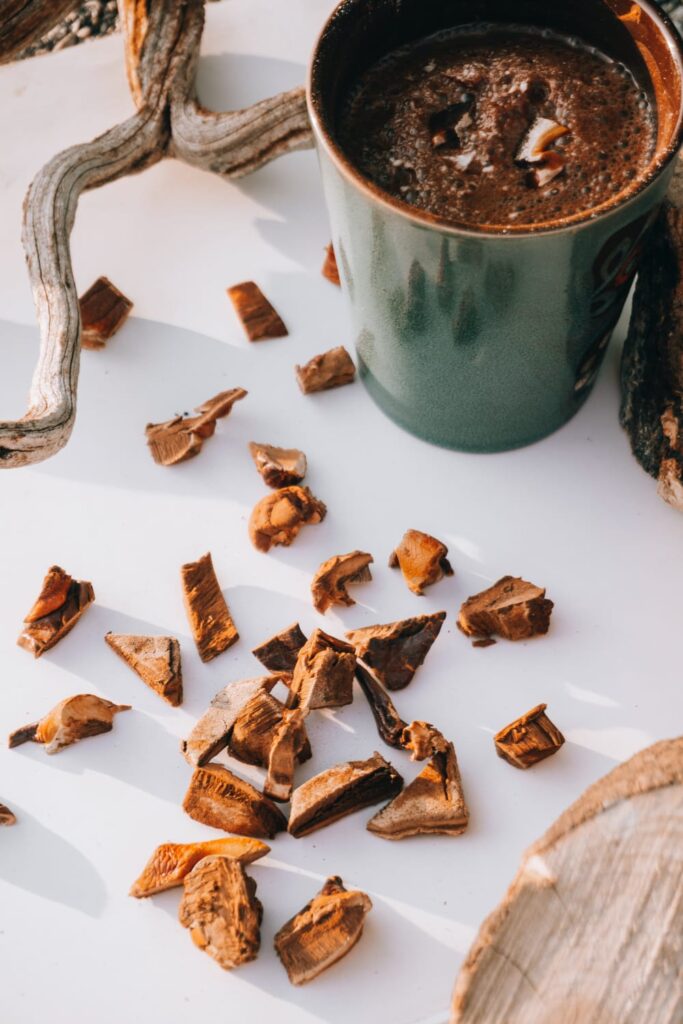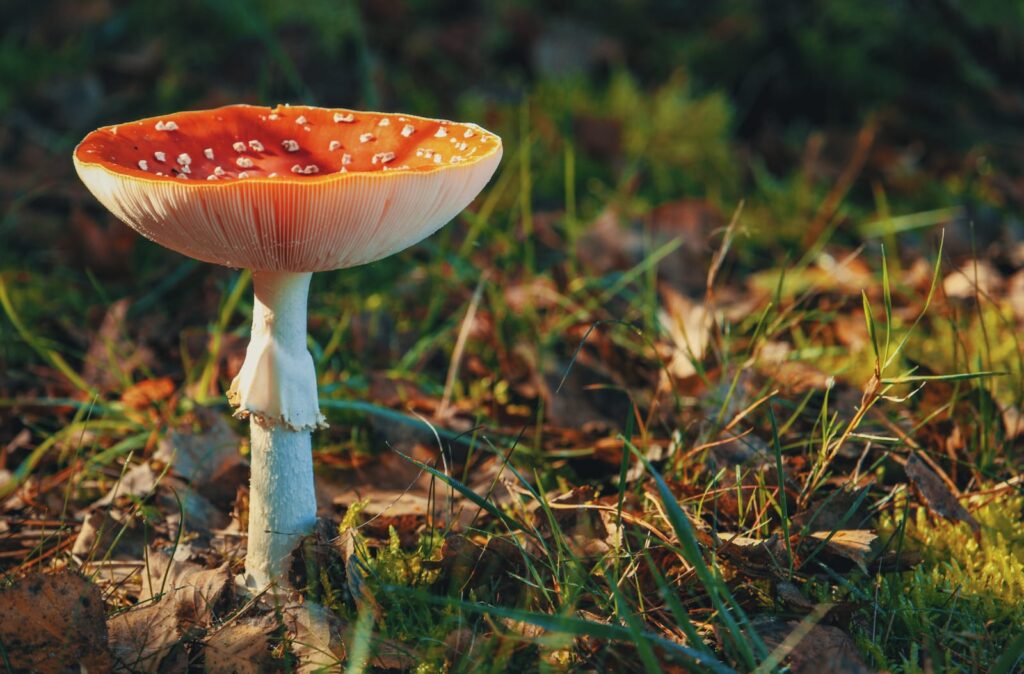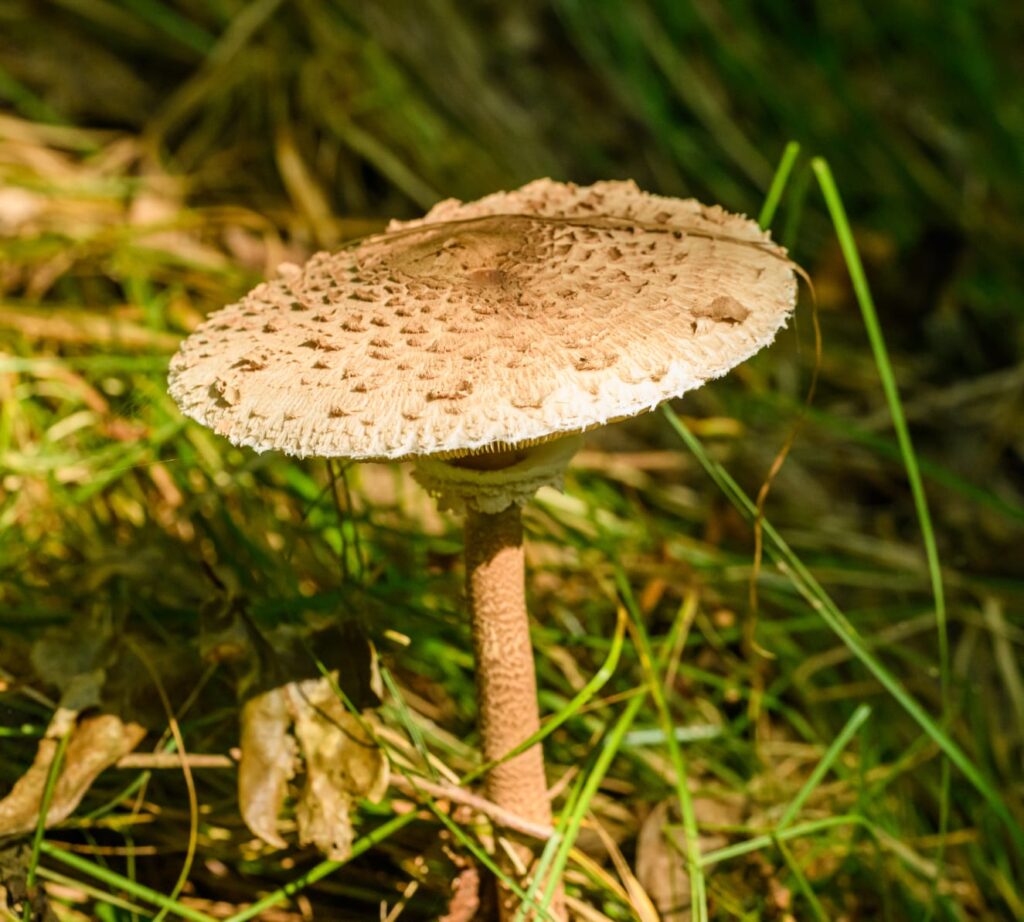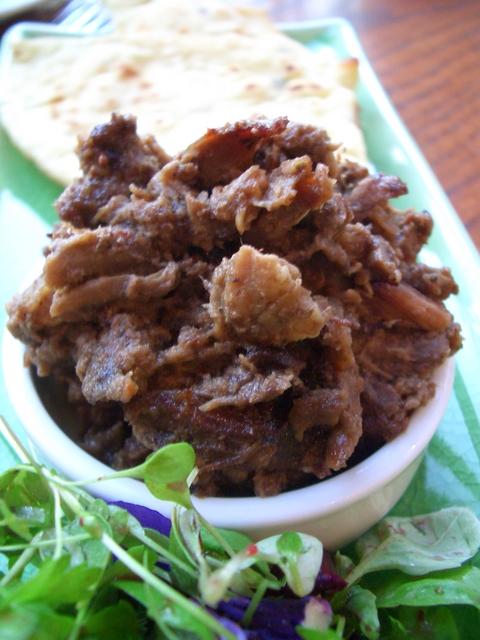Discover the 10 transformative benefits of Reishi Mushroom Tea. Learn the optimal times to drink this powerful elixir for enhanced wellness and rejuvenation.

Table of Contents
Introduction to Reishi Mushroom Tea
Traditional Chinese medicine has used the Reishi mushroom, which is often called the “Mushroom of Immortality,” for more than 2,000 years. This reddish-brown fungus comes from the dense forests of Asia. It has been respected for its possible health benefits and spiritual power. Today, Reishi Mushroom Tea is becoming known around the world as a health drink. It has a unique blend of earthy tastes and is said to have many health benefits.
Reishi mushroom tea is known for its adaptogenic effects. It is thought to help the body deal with stress and find a state of balance. It doesn’t just calm the body, but also the mind and the heart. Many people drink it every day because they believe it boosts the immune system, gives them vitamins, and helps them relax.
But, as with any natural treatment, it’s important for people to understand the science behind Reishi, its benefits, and any possible side effects. In this post, we’ll go into detail about Reishi Mushroom Tea, separating fact from myth and giving people the information they need to make smart choices.
What is Reishi Mushroom Tea?
The Reishi mushroom, also called *Ganoderma lucidum* in science, is used to make Reishi mushroom tea, which is a wholesome drink with a long history. This kidney-shaped fungus has a shiny surface and is often a striking shade of red. It grows well in wet, coastal areas and has been an important part of Eastern medicine for thousands of years. Tea is made by boiling dried Reishi slices or powder. This makes a drink with a rich, woodsy taste and a bitterness that is often compared to unsweetened cocoa.
Reishi tea is popular for more than just how it tastes. It’s a drink with a long past and lots of stories about how it can help with everything from boosting your immune system to relieving stress. Even though current science hasn’t caught up with these claims yet, early studies point to possible health benefits in a number of areas.
Today, wellness trends focus on natural and plant-based solutions. Reishi mushroom tea stands out as both a link to ancient wisdom and a promising area of study. As interest grows, it’s important for fans to know where this unique drink comes from, how to make it, and what makes it special.
Reishi Mushroom Tea Benefits
1. Immune System Boost: One of the most notable advantages of Reishi mushroom tea is its potential to enhance the immune system. Some studies suggest that Reishi can influence the activity of white blood cells, which are crucial for combating infections.
2. Stress and Fatigue Reduction: Reishi is classified as an adaptogen, meaning it can help the body combat stress. Many people consume Reishi mushroom tea to reduce mental fatigue and improve feelings of tranquility.
3. Antioxidant Properties: The tea boasts strong antioxidant properties, which can help combat oxidative stress—a primary contributor to premature aging and various diseases.
4. Supports Heart Health: Some research indicates that Reishi mushrooms can help lower blood pressure and cholesterol, thereby supporting cardiovascular health.
5. Blood Sugar Regulation: Preliminary studies suggest that Reishi might have properties that help regulate blood sugar levels, potentially benefiting those with diabetes or at risk of the condition.
6. Anti-Cancer Potential: Some research points towards Reishi mushroom’s potential to fight certain types of cancer cells. However, more comprehensive studies are required to determine its full impact.
7. Liver Protection: Traditional use and some studies hint at Reishi’s ability to support liver function and protect it from harmful substances.
8. Promotes Sleep: Many users believe that Reishi mushroom tea helps improve sleep quality, though more research is needed in this area.
9. Allergy Reduction: Reishi mushrooms are said to reduce histamine reactions, which can potentially help those with allergies.
10. Cognitive Health: Though more research is needed, some believe that Reishi mushroom tea can promote neuroprotective actions, potentially supporting brain health and cognitive functions.
As with all natural remedies and supplements, it’s crucial for consumers to consult with healthcare professionals before incorporating Reishi mushroom tea into their routine, especially for its therapeutic benefits.
Why is Reishi Mushroom Tea popular?
In this age of health and natural remedies, Reishi mushroom tea is a great example of how ancient practices and current health goals can come together. This drink has been around for a long time, and it was once thought of as the “elixir of life” in ancient East Asian countries. It is now making waves in the health world because of all the benefits people say it has. Many people want to drink it because it has a unique mix of earthy tastes and could help them feel better.
People today are moving more and more toward holistic and organic health solutions and away from synthetic goods in favor of what nature has to offer. Reishi mushroom tea is a great choice for this story. Studies have looked at its adaptogenic qualities, antioxidant content, and possible ability to boost the immune system. This gives its traditional uses more scientific backing.
Also, the international world has made it easier for cultural practices to be shared and mixed. Holistic Eastern treatments are becoming more famous in the West, and Reishi mushroom tea is riding this wave. It is popular not only because it is good for your health, but also because it brings ancient knowledge into the modern world.
Is Reishi mushroom tea effective?
Reishi mushroom tea has a long history of use in traditional medicine. In today’s wellness-focused world, this brings up an important question: Does it really work? Scientists are learning more and more about how effective Reishi mushroom is, especially as a tea. Early studies have shown that it may be useful, especially for its adaptogenic qualities, ability to help the immune system, and antioxidant content. These first results give us a scientific way to look at how it was used in the past.
Even though early studies is promising, the effectiveness of Reishi mushroom tea can vary depending on the person, how it is made, and how much is taken. It’s important to be both optimistic and realistic about how to use it. Even though many people have heard anecdotal evidence of its benefits, full clinical studies are still needed to figure out its full range and depth of effectiveness.
The discussion about how well it works is part of a larger conversation about how traditional medicines are used today. As people’s interest in holistic health options continues to grow, it’s important that they get a close look from scientists. Reishi mushroom tea, which has both a long past and a lot of potential, is right in the middle of this interesting place.

Dosage and Timing
Can you drink Reishi tea every day?
Fans and health professionals are both interested in the idea of drinking Reishi mushroom tea every day. In the past, Reishi mushroom, also known as the “Mushroom of Immortality,” was regularly used in traditional Chinese medicine to improve general health and help people live longer. It is thought to help the body deal with stress because it has adaptogenic qualities. This makes it an appealing daily tonic for many people today.
But, like any supplement or herbal medicine, it’s important to use it in balance. Even though many people drink Reishi mushroom tea every day with no obvious side effects, it’s important to take into account each person’s tolerance, the strength of the tea, and any underlying health problems. Before adding something new to your daily routine, you should always talk to a doctor or nurse to make sure it is safe and fits your health needs.
Is it safe to take Reishi mushrooms every day?
Reishi mushroom tea has been used for health since ancient times, which makes people wonder if they can drink it every day. From a historical point of view, many countries used Reishi as a regular tonic because they believed it could boost energy and keep the body’s energies in balance. But the current point of view needs a mix of tradition and scientific research.
Even though early research shows that Reishi mushrooms is generally safe for most people, taking them every day for a long time could cause stomach problems or allergies in some people. Also, it’s important to know how much Reishi was used in the tea and where it came from. Getting only pure, high-quality Reishi goods can help ease some worries. Before starting a daily Reishi regimen, it’s important to talk to a health professional to find the right mix between traditional knowledge and your own health.
Should you take Reishi in the morning or at night?
People who have been drinking Reishi mushroom tea for a long time and people who have just started drinking it are both curious about the best time to drink it. Reishi is known for its adaptogenic qualities, which make it a supplement that can be taken at different times of the day. Some users like to take it in the morning because they think it sets a calm tone for the day and helps them deal with worry better.
On the other hand, many people say that it should be used at night because it might be calming and help people sleep better. Reishi’s mild calming effects could make it a good drink to drink in the evening, preparing the body and mind for a good night’s sleep. In the end, the best time might depend on each person’s past events and what they want to happen. Experimenting with help and keeping track of how you feel can help you figure out the best time to drink Reishi tea.
How long does it take for Reishi to start working?
There are many different stories about how long it takes for the benefits of Reishi mushroom tea to show up. Since it has been used in traditional medicine for a long time, people naturally have high hopes for how it will work. But, like most natural remedies, it takes different amounts of time for different people to feel the benefits of Reishi tea. Some people feel calmer or clearer right away after using it, but others may feel the effects more slowly over a longer period of time.
Before figuring out all of its benefits, you might need to take it every day for weeks or even months. This is especially true for effects that affect the whole body, like helping the immune system or reducing stress over time. It’s important to approach Reishi with care and an open mind, knowing that its effects, though powerful, may not always be obvious right away. As always, keeping track of your own events and talking to health experts can help you understand how they affect you personally.

How long can you drink Reishi tea?
People who want to work this old tonic into their daily lives often focus on how long they should drink Reishi mushroom tea. In the past, Reishi was used as a part of traditional health routines for long periods of time, sometimes even for a lifetime. This history shows that long-term use is safe when done in the right amounts.
But in the current world of holistic health, moderation and regular checks are key. Many people can safely drink Reishi tea for long amounts of time, but it’s best to take breaks every so often to let the body reset. Also, people who use it every day for a long time might experience some side effects. When you talk to a doctor or nurse about your Reishi tea on a regular basis, they can give you advice that is specific to your needs. This makes sure that your Reishi tea is both effective and safe.
Reishi Tea and Sleep
Can I drink Reishi before bed?
Many people find that having a soothing drink in the evening helps them transition from a busy day to a peaceful night’s sleep. With its mild adaptogenic and relaxing effects, Reishi mushroom tea has become known as a possible bedtime drink. Many people think that drinking Reishi tea before bed can help them sleep better, feel less anxious at night, and relax more deeply.
The brew’s earthy tones and mild bitterness can be a soothing background for nighttime routines, which can help you relax even more. But everyone reacts differently, and while many people find it helps them sleep, others might not notice any big changes. As always, the best way to use it before bed is to try it out for yourself and talk to an expert.
Does Reishi make you sleepy?
Herbal drinks offer a lot of choices for people who want to improve their health in different ways, and Reishi mushroom tea is often at the center of conversations about how to relax and sleep. Even though Reishi mushroom tea is known for its calming and adaptogenic effects, does it really make you sleepy? Some people who drink the brew say it gives them a slight sense of relaxation and calms their minds, which can help them sleep better.
But it’s important to know the difference between being sedated and being relaxed. Reishi doesn’t make you sleepy in the same way that some sleep aids do. Instead, its ability to help people relax might indirectly help them get ready for sleep. It’s important to remember that everyone reacts differently, so while it might help some people fall asleep, others might just like how calm it makes them feel without falling asleep.
Why take Reishi at night?
Routines at night are a big part of winding down for the day and getting ready for a good night’s sleep. In this situation, many people choose to drink Reishi mushroom tea. Its adaptogenic qualities help reduce stress, which can be especially helpful at the end of a day full of challenges and stimuli. If you drink Reishi tea at night, you might feel more calm and balanced, which will help your mind and body get ready for sleep.
Even though Reishi doesn’t directly make you sleep, its possible relaxing benefits might help some people sleep deeper and more peacefully. Adding Reishi tea to your evening routine can be seen as a nod to both tradition and modern holistic health. It brings together old wisdom and modern wellness practices to help you get the most out of your nighttime rest.

Is Reishi tea good before bed?
Reishi mushroom tea has made a name for itself among people who want natural sleep aids in a world full of drinks to drink at night. In the past, it was respected as a tonic for general health, and now it is valued for its adaptogenic and calming effects. Drinking Reishi tea before bed can be a grounding practice that makes it easier to go from a busy day to sleep at night.
Some people might be able to sleep better because the tea can calm the mind and relieve stress. Even though it doesn’t put you to sleep directly, its ability to help you relax can make it easier to sleep. Reishi mushroom tea is a good choice for people who want a natural, all-around way to get ready for bed that combines tradition with modern sleep health.
Precautions and Side Effects
Who shouldn’t drink Reishi tea?
Reishi mushroom tea is popular because it might be good for your health, but not everyone can drink it. People who have allergic diseases should be careful. Reishi might make symptoms worse for people with lupus, rheumatoid arthritis, or multiple sclerosis because it can boost the immune system.
Also, people who take blood-thinning or blood-clotting medicines should be careful with Reishi because it may make bleeding more likely. Women who are pregnant or nursing are also told to stay away from Reishi because not enough is known about how it will affect them during these times. Lastly, people who are going to have surgery or have a history of low blood pressure should talk to their doctor before taking it. No matter what product you take, including Reishi, you should always be aware of your health and talk to a doctor before taking it.
What should I avoid when taking Reishi?
To figure out how to use holistic remedies like Reishi mushroom tea, you need to know not only what they can do for you, but also how they might combine with other things and what you should do to stay safe. One of the most important things to think about when taking Reishi is how it might combine with other medicines. People who take anticoagulants or antiplatelet drugs should be especially careful because Reishi might make the blood-thinning effects stronger, which could increase the chance of bleeding.
When taking medicine to treat hypertension, it’s important to keep a close eye on blood pressure. Reishi is known to be able to lower blood pressure, and when mixed with drugs for high blood pressure, it could cause blood pressure levels that are too low. Also, combining Reishi with caffeine or other stimulants may make its calming benefits less strong. To use Reishi safely, you must balance how much you take and pay attention to how it reacts with other drugs.
Does Reishi affect the kidneys?
Even though Reishi mushroom tea is well-known for its many health benefits, there are still questions about how it affects organs like the kidneys. Some early studies have shown that parts of the Reishi mushroom may be able to protect the kidneys from damage, especially when there is toxic stress. This has gotten the attention of people who are looking for harmless ways to keep their kidneys healthy.
On the other hand, there have been some rare cases of Reishi use causing liver and kidney damage. Even though these things don’t happen very often, they show how important moderation and close tracking are. People who already have kidney problems or take medicines that affect kidney function should talk to a doctor before adding Reishi tea to their routine. This will make sure that the tea works and is safe.

Reishi Mushroom Tea Side effects
1. Digestive Upset: Some individuals may experience digestive issues after consuming Reishi mushroom tea. This can manifest as diarrhea, abdominal pain, or bloating. While these side effects are relatively rare, it’s essential to monitor any changes in digestive health after starting the tea.
2. Allergic Reactions: As with many natural products, there’s a possibility of allergic reactions to Reishi mushroom. Symptoms might include skin rashes, itching, and respiratory problems.
3. Blood Thinning: Reishi mushroom has been noted to possess anticoagulant properties. This means that it might increase the risk of bleeding, especially if consumed alongside blood-thinning medications.
4. Lowered Blood Pressure: Reishi may have hypotensive effects, potentially lowering blood pressure. This can be a concern for individuals already on antihypertensive medications or those with naturally low blood pressure.
5. Liver Toxicity: Although rare, there have been reports of Reishi mushrooms causing liver damage. Anyone considering Reishi, especially those with liver conditions or on medications affecting liver function, should approach with caution and under professional guidance.
6. Dryness: Some people report experiencing dryness in the mouth, throat, and nasal passages after consuming Reishi tea.
7. Dizziness and Headaches: A few individuals might feel dizzy or experience headaches after drinking Reishi mushroom tea, especially when consumed in large amounts.
8. Potential Hormonal Effects: There’s some evidence to suggest that Reishi mushrooms can impact testosterone and estrogen levels. This could be a concern for individuals with hormone-related conditions or those on hormone therapies.
9. Interaction with Medications: Beyond the anticoagulant and antihypertensive concerns, Reishi might also interact with other medications, including immunosuppressants.
It’s crucial to remember that, while side effects are possible, they don’t necessarily occur in everyone. The key is to start with small amounts, monitor one’s body’s response, and always consult with a healthcare professional before adding any supplement to one’s regimen.
Conclusion
Summing up the benefits and precautions of Reishi Mushroom tea
Reishi mushroom tea, which has a long history of use in traditional medicine, has a number of health benefits that are hard to resist. It is known for helping people deal with stress, boosting the immune system, and possibly improving the quality of sleep. Many people also use Reishi to clear their minds and keep their bodies healthy because it is said to have antioxidant and anti-inflammatory benefits. The earthy elixir has won its place in holistic health plans.
But along with its benefits come some things you should watch out for. Notably, you should pay attention to how Reishi might combine with medications, especially blood thinners and antihypertensives. There are also worries about what it might do to the liver and kidneys, as well as what it might do to hormones. Like any powerful natural remedy, Reishi needs to be used with a healthy mix of excitement and care to make sure its benefits are used safely and well.
To get the most out of Reishi mushroom tea, start with small amounts, pay attention to how your body reacts, and put open communication with medical workers first. This whole-person method makes sure that the ancient wisdom of Reishi is used in a modern way that fits the needs and wellness goals of each person.
When should I drink Reishi mushroom tea?
Drinking Reishi mushroom tea can be done in a way that fits each person’s tastes and health goals. Many people look forward to drinking this old elixir in the evening because it can help them relax and fall asleep. Reishi may help you relax because it has subtle adaptogenic effects. The best time to take it is after dinner or before bed.
But a cup in the morning might be better for people who want to boost their energy or defense system. Having something in the morning can set the tone for a balanced day and may help you deal with worry. In the end, the best time depends on how you feel and what you want to happen. As with any supplement or plant remedy, it’s important to pay attention to how your body reacts and change how often you take it to get the best results.
Thank you, dear readers, for diving into this post. If you found it enlightening, please consider sharing it with others. Also, don’t forget to explore my other articles for more insights and valuable information. Your support means the world!
External Link
For further information about Reishi Mushroom Tea , Please visit Wikipedia.

